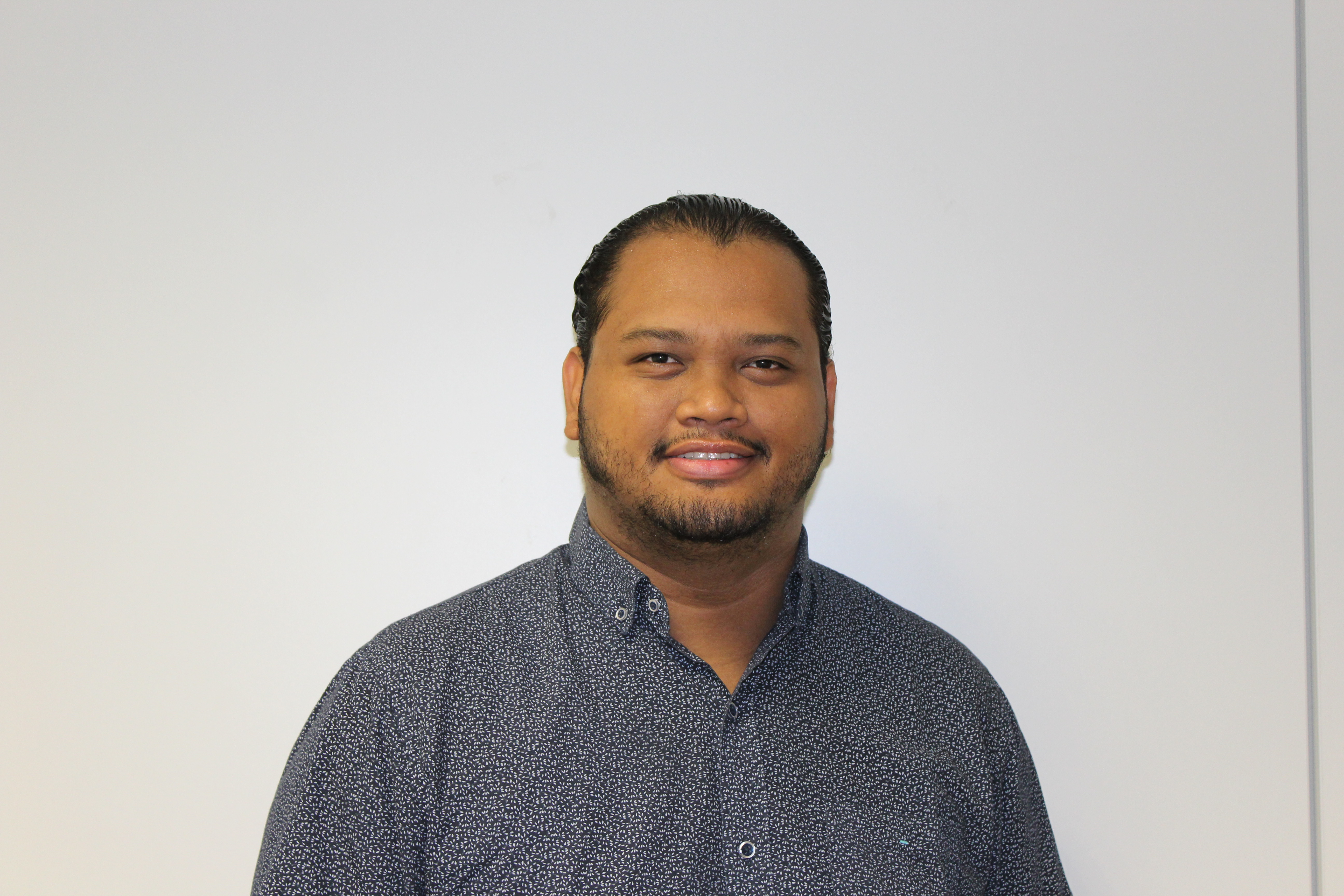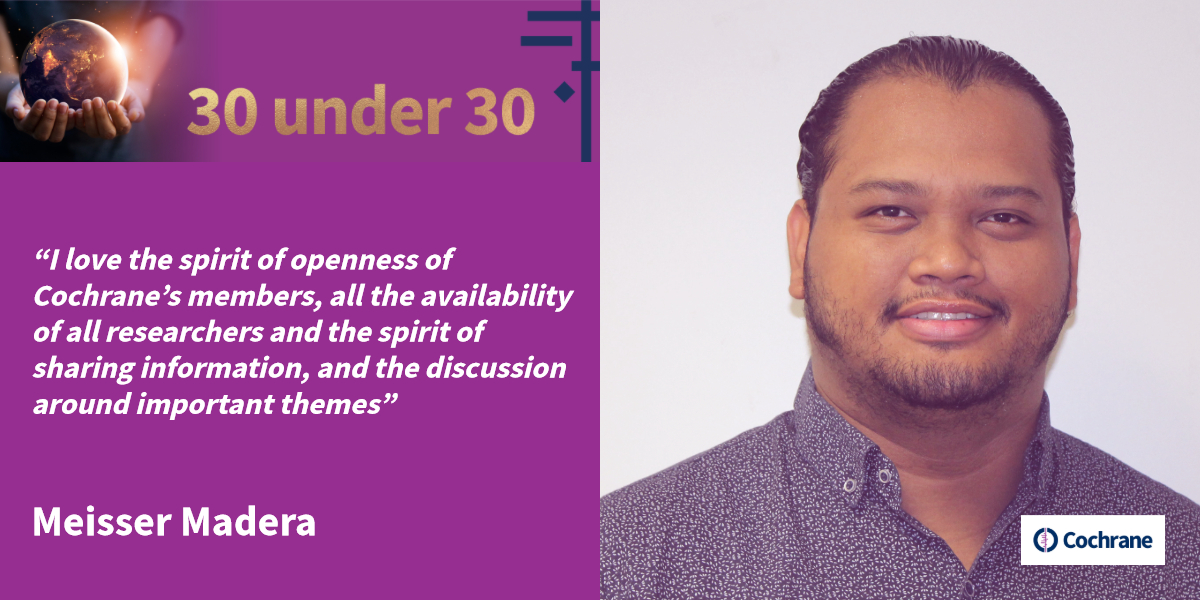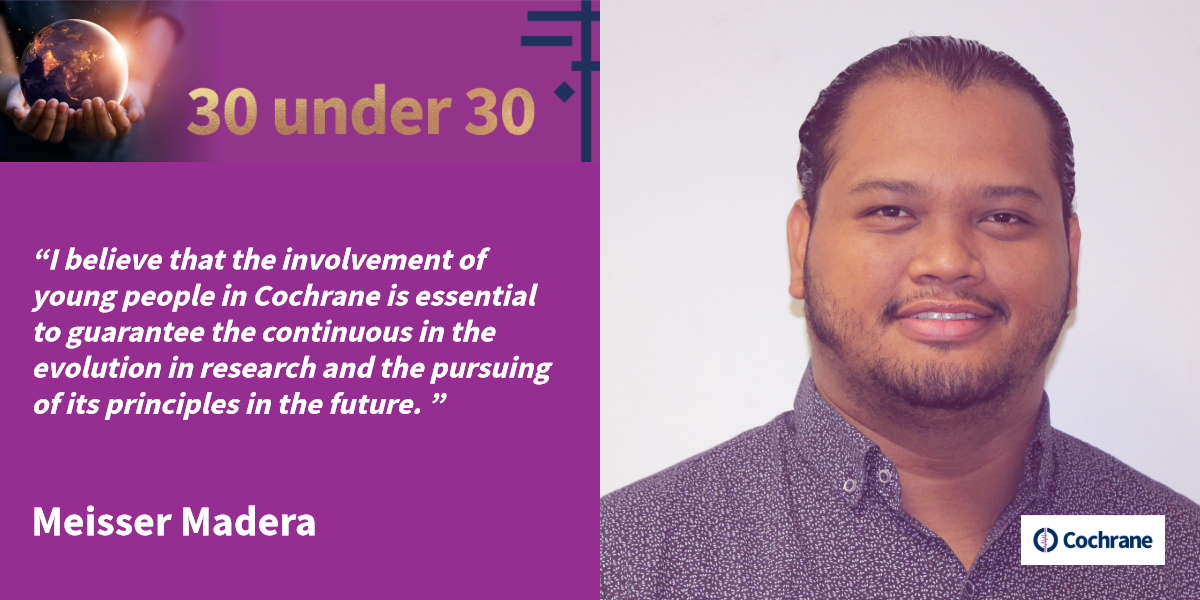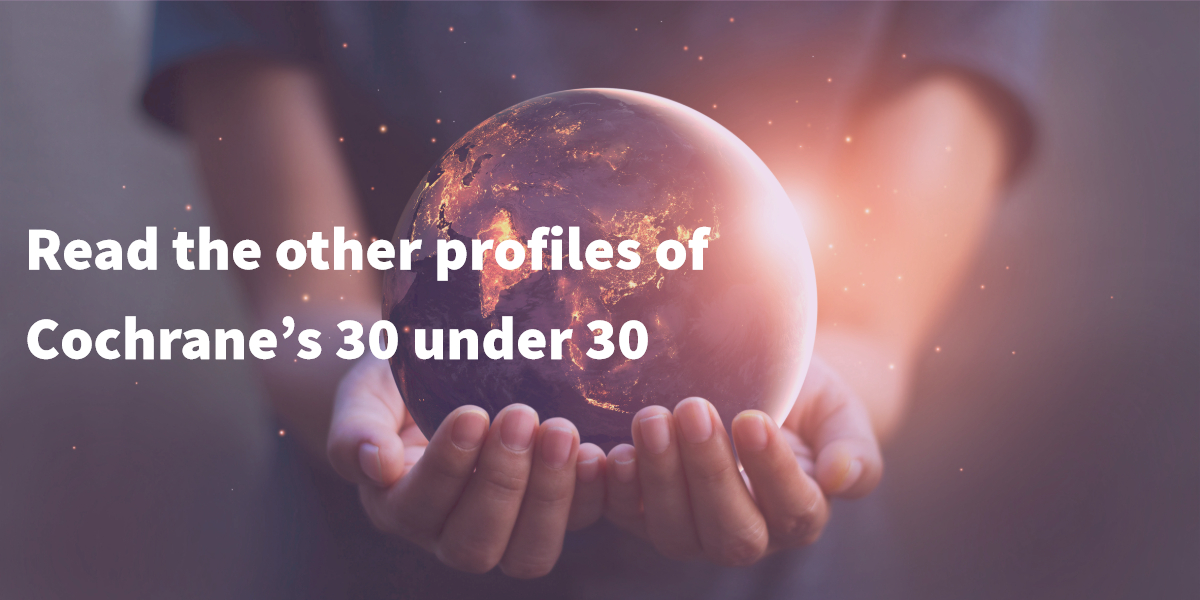
Cochrane is made up of 13,000 members and over 50,000 supporters come from more than 130 countries, worldwide. Our volunteers and contributors are researchers, health professionals, patients, carers, people passionate about improving health outcomes for everyone, everywhere.
Cochrane is an incredible community of people who all play their part in improving health and healthcare globally. We believe that by putting trusted evidence at the heart of health decisions we can achieve a world of improved health for all.
Many of our contributors are young people working with Cochrane as researchers, citizen scientists, medical students, and volunteer language translators and we want to recognize the work of this generation of contributors as part of this series called, Cochrane’s “30 under 30."
In this series, we will interview 30 young people, 30 years old or younger who are contributing to Cochrane activities in a range of ways, all promoting evidence-informed health decision making across the world.
We will be hearing from them in a series of interviewees published over the coming months.
We're keen to hear from you. Would you like to take part in this series? Do you know someone you'd like to see interviewed? Contact kabbotts@cochrane.org. Or if you want to know more about Cochrane’s work contact membership@cochrane.org where our community support team will be happy to answer your questions.

Name: Meisser Madera (on Twitter @resiem1209)
Age: 30
Occupation: Professor at Faculty of Dentistry, University of Cartagena, Cartagena, Colombia; and member of Iberoamerican Cochrane Center, Barcelona, Spain
Program: PhD candidate in Methodology of Biomedical Research and Public Health at the Autonomous University of Barcelona, Spain
Read this interview in Spanish
How did you first hear about Cochrane?
I first heard about Cochrane Collaboration when I was a Masters student. My classmates and I had to read some Cochrane systematic reviews and discuss the importance of Evidence-Based Medicine.
How did you become involved with Cochrane? What is your background?
I have been involved in medical research since I was an Undergraduate student in Dental School at the University of Cartagena, Colombia. After my dentistry bachelor’s degree, I worked as a Research Assistant in the Research Department at that same University. There, I worked in several projects focusing on dental public health. Afterwards, I attended two Master degrees: one on Clinical Epidemiology, and the second one on Biochemistry. Currently, I am enrolled in the Methodology of Biomedical Research and Public Health doctorate program at the Autonomous University of Barcelona, Spain. So, my involvement with Cochrane began when I started to develop my PhD thesis in collaboration with the Iberoamerican Cochrane Centre in Barcelona. The main focus of my thesis is on quality assessment of available evidence about diagnosis and treatment for oral cavity cancer.
What do you do in Cochrane?
Besides my PhD thesis project, I have been collaborating in some projects concerning evidence-based medicine. They are mainly focused on quality assessment of clinical practice guidelines, evidence mapping methodology and systematic reviews. I also belong to Students 4 Best Evidence and Oral Health Evidence Ecosystem initiative.
Fortunately, I also had the opportunity to attend the Edinburgh Colloquium and the Cochrane UK student elective program in Oxford, last year. It was fabulous and I had a different perspective about the Cochrane's work and its importance in research all over the world.

What specifically do you enjoy about working for Cochrane and what have you learnt?
I love the spirit of openness of its members, all the availability of all researchers and the spirit of sharing information, and the discussion around important themes. It is an organization where you can work with people from across the world, be involved in different ways and tasks, with the main goal to contribute on the improvement of evidence-based health care practice. In this sense, I have learnt so much about critical appraisal of evidence, as well as different ways to translate the best available evidence into practice.
What are your plans?
I am planning to finish my PhD program and to continue to be involved in Cochrane's work as much as possible before I go back to Colombia. I will continue to work as a professor at University of Cartagena, where I hope to share all my knowledge on Evidence-Based Medicine with my students and colleagues with the main goal of spreading everything I learnt and indirectly improve the quality of dental practice performed in my country. However, I think that I will keep on developing research because if you do not investigate, science wont go further…
In your personal experience, what one thing could Cochrane do better to improve its global profile?
In my opinion, Cochrane’s work is wonderful. However, I think that Cochrane should increase the participation of stakeholders such as clinicians, health care students, patients and their families, etc. into its process. Although Cochrane has been doing a great work on evidence dissemination, it should be more accessible, especially in developing countries.
What do you hope for Cochrane for the future?
I hope that Cochrane continues to be an independent leader organization, which impacts on public health policies globally. I also wish that Cochrane’s work will be of knowledge and recognized in all regions where currently is unknown. It would be a great help on the improvement of health care practice and decision-making process in those areas.
How important is it that young people get involved in Cochrane?
I believe that the involvement of young people in Cochrane is essential to guarantee the continuous in the evolution in research and the pursuing of its principles in the future.
Why is this, do you think?
Since one of Cochrane's aims is to build an effective and sustainable organization. In my opinion, the young people’s work is crucial to achieve this goal. Young investigators can contribute in different areas and tasks in many ways. We also have the chance to recognize the importance of use of high-quality evidence into clinical practice. Therefore, it is likely that all young people involved in Cochrane Collaboration will apply that knowledge in their careers.

What would your message be to other young people who want to get involved with Cochrane’s work but not sure where to start….?
I felt very cherished when I came to Cochrane; there is hope for everyone in Cochrane!
Please do not be afraid. My first suggestion is, that they look for information about Cochrane on its website and follow Cochrane on social media. In those sites there is useful information that will help them to apply and decide in which field or task they want to get involved. The second suggestion is for them to contact Cochrane Center or Network that they are interested in. They will get an answer as soon as possible.


